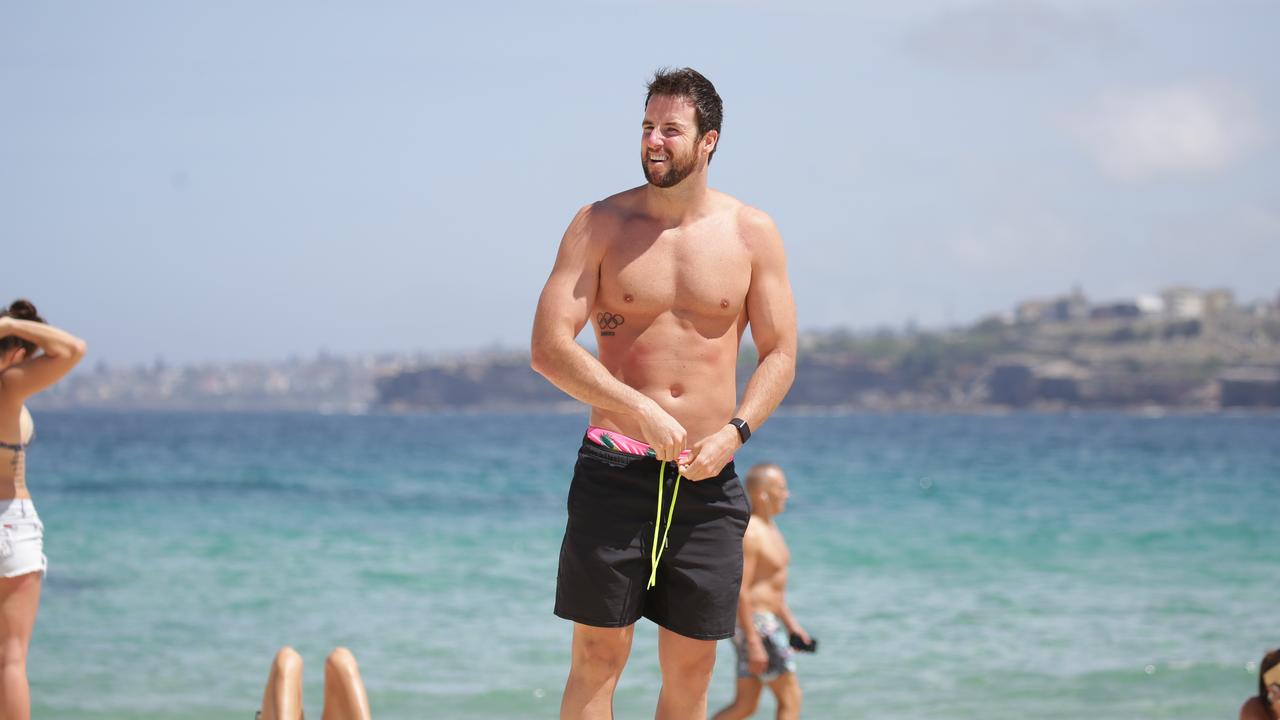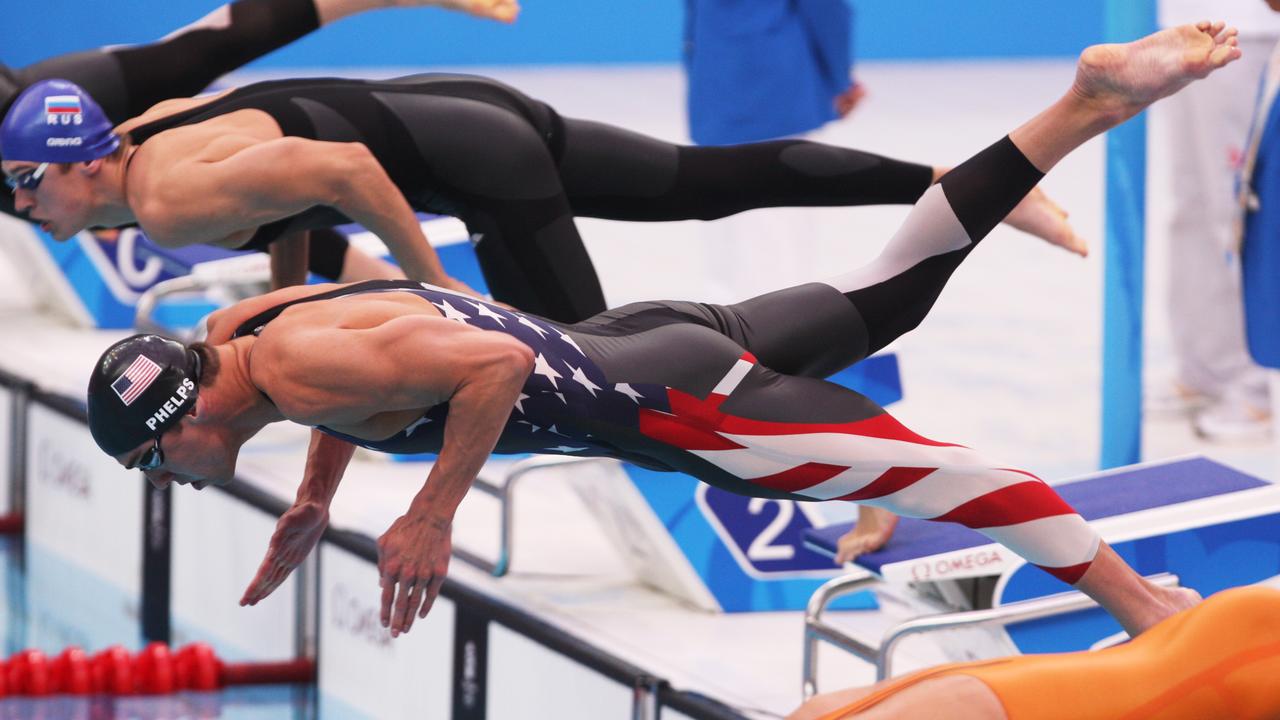Australian Olympic swimmer James Magnussen in shock Enhanced Games move
An Australian is locked in to compete at the steroid-fuelled Enhance Games for a massive prize in a stunning announcement.
Australia’s two-time Olympian James Magnussen has been confirmed as the first known athlete to compete in the proposed steroid-driven Enhanced Games for a US$1 million ($1.54 million) prize.
The brainchild of Australian Aron D’Souza, a lawyer and businessman raised in Melbourne, the “Olympics on steroids” boasts that athletes will dope “out in the open and honestly”.
Magnussen had been linked with the concept and now the official X account for the games has confirmed his participation.
Stream Over 50 Sports Live & On-Demand with Kayo. New to Kayo? Start Your Free Trial Today >
“We’re pleased to announce that Olympian James Magnussen has accepted the challenge to compete in the first Enhanced Games,” the post stated.
“$1m prize for breaking the 50 freestyle swimming world record. More details to come.”
The confirmation comes just hours after Magnussen had publicly put his hand up to compete in the proposed games, where steroids are not only allowed, but encouraged.
One of the fastest swimmers in recorded history, Magnussen is a two-time 100m freestyle world champion and claimed silver in that event at the London Olympics in 2012.

The 32-year-old says he has kept himself in shape since retiring back in 2019 and is prepared to “juice to the gills” in an attempt to break the 50m world record, for the right price.
Speaking on the Hello Sport podcast, Magnussen was asked about the concept of the steroid games and which athletes should be considered
“You’re not going to get swimmers good enough,” the four-time Commonwealth Games gold medallist said.
“You can’t just teach talent to a swimmer and then ‘juice’ him up and make him good.
“You’ve got to get a pre-existing fast swimmer right?
“They’ve said they’ve got a billion-dollar person backing them. If they put up a million dollars for the 50 freestyle world record, I will come on board as their first athlete.
“I’ll juice to the gills and I’ll break it within six months.
“I’m going to need one of those super suits to float me, because if I get unbelievably jacked, then I’ll sink.”

Hi-tech swim suits were the norm in swimming in the early 2000s before their impact became too pronounced.
Across 2008 and 2009, 122 long course world records were broken in the suits, which were made using teflon and then polyurethane or neoprene material and were labelled “technical doping”.
Wold swimming’s governing body then banned the suits on January 1, 2010.
Magnussen’s personal best in the 50m freestyle is 21.52, set back in 2013, while the world record is 20.91, set by Brazilian Cesar Cielo in 2009.
Cielo’s mark is one still standing in history from the fast suit era.

“When I was swimming I was about 21.5 so I need half a second,” Magnussen added.
“So juice and a suit, happy days.”
Silicon Valley billionaire Peter Thiel, a co-founder of PayPal, is among a raft of high-profile people throwing financial muscle behind the concept.
The venture claims it is aimed at aiding research into nutritional supplements and biohacks that push the boundaries of human performance.
D’Souza plans to provide more details on April 17 and promote the controversial concept in Paris during the Summer Olympics, which begin in July, but the initial plan is to feature swimming, athletics, combat events, gymnastics and weightlifting.

D’Souza and Magnussen both discussed more details about the concept on radio station SEN 1170 Breakfast.
“People like James deserve to earn millions for the extraordinary feats they have accomplished and we are willing to do so,” D’Souza said.
Magnussen said coming from a country with a clean reputation, the opportunity to dope was intriguing to him.
“I thought it was an interesting concept when I first heard it,” he said. ”We’re pretty aware as Olympians in Australia that there is performance enhancements going on in other countries. “Australia is well known for being one of if not the cleanest in the Olympic Games. But it’s not a level playing field internationally and we know that.
“I thought for the right price this would be a very interesting pursuit.”
Magnussen added he would need to understand much more about steroid use and “take the right supplements”.

“I want to approach this the right way, I want to go to America, I want to get the right advice and take the right supplement,” he said.
”I don’t know much about that world so I want to do my research and have the right team behind me and with the help of Aron, I’d like to document it through video form. Show how it can be done safely, properly and create an athlete we haven’t seen before.”
Thiel is among several high-profile venture capitalists who have backed the project, including billionaire Christian Angermayer of Apeiron Investment Group and Balaji Srinivasan, the former chief technology officer of cryptocurrency exchange Coinbase.
D’Souza would not reveal how much money was raised, telling The New York Post earlier this month it was in the “high single-digit millions” — a sum that is “enough to produce the first games”.
We're pleased to announce that Olympian James Magnussen has accepted the challenge to compete in the first Enhanced Games. $1m prize for breaking the 50 freestyle swimming world record. More details to come.
— Enhanced Games (@enhanced_games) February 8, 2024
D’Souza said that Enhanced Games are negotiating with several host cities “that have requisite infrastructure” though he declined to specify which venue will host the inaugural competition, which he expects to get underway by the middle of next year.
“My body, my choice, your body, your choice,” D’Souza told The Post when asked about the philosophy behind allowing athletes to juice.
“Individuals should be able to make choices about your body and no one — whether it’s a sports federation or the government — should be able to tell them what to do about it.”
He added that the events are open to any athletes — current and former professionals and amateurs — and that allowing them to enhance their performance with substances will enable researchers to get a better idea of what technologies are out there that can boost longevity and “healthy ageing”.






